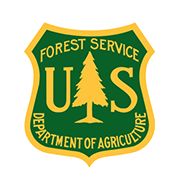Single Publication
Could not determine your location.
Middle Fork Complex Daily Update Oct. 2nd, 2024 10-02-2024
Middle Fork Complex Fire: Bulldog and Nellie, Snag Fire, Goat Fire
Publication Type: News - 10/02/2024 - 09:30
Middle Fork Complex Fire Update
October 2, 2024
Middle Fork Fire Information: 208-992-3045 (8 a.m. – 8 p.m.) | Email: 2024.middleforkcomplex@firenet.gov
Middle Fork Complex: 61,484 acres, 90% completion, 328 Personnel
Snag Fire: 33,436 acres, 90% completion, 58 Personnel
Goat Fire: 27,342 acres, 46% completion, 118 personnel
Crews are continuing fire suppression repair. Fire suppression repair is a series of immediate, post-fire actions taken anywhere the ground was disturbed for fire suppression to repair damage and minimize potential soil erosion and impacts to forest infrastructure. This could vary from restoring a narrow two-foot-wide handline to a 20-foot dozer fireline. Some roads may also have been damaged by heavy equipment and need to be repaired to their previous state of use. Staging areas, places where firefighters install water pumps, or supply drop points may also require restoration work. These actions are usually started in the burned area as soon as resources can be safely shifted away from fire suppression efforts. Incident Management Teams allocate resources and personnel to implement repair work with guidance from local forest leaders and resource advisers with local knowledge and understanding. The work required to make these repairs could easily overwhelm local forest staff and could take years to complete if left undone while additional personnel and equipment from the fire are on site.
Repair work can include installing water bars and other drainage diversions to help stabilize the watershed and minimize erosion. Masticating, chipping and spreading debris can protect bare soils and allow for the soil to retain moisture. Repairing damaged road drainages and clearing stream channels is also part of suppression repair. During this time, crews also work to remove hazardous trees, fix damage to roads and trails used during suppression efforts while also removing fire hoses and pumps that were placed for crews to use. It is a very labor and logistically intensive process to stabilize the fire area and start the recovery process.
Middle Fork Complex: Fire behavior continues to be minimal smoldering and creeping with no intense or scattered heat near the perimeter. Crews continue suppression repair work in the area.
Goat: Several small areas of intense heat still persist along the southern perimeter and northeastern perimeter. There are also several interior areas of intense heat that are producing much of the smoke flowing into the Garden Valley area. The warmer weather and lower humidity is drying fuels to mid-summer conditions. Crews are reinforcing and developing indirect fire lines to keep new fire growth on the south and southwest flanks from impacting developed areas.
Snag: Fire behavior continues to be minimal smoldering and creeping with no intense areas of heat near the perimeter. Crews continue suppression repair work in the area.
Weather Outlook: High pressure and very dry continue over the next few days with warmer temperatures in the 60s and 70s across most of the area and terrain driven winds of around 3-7 mph. Northeastern winds continue to push smoke into the Garden Valley area. As temperatures rise in the afternoon, smoke in the area is expected to disperse. This daily cycle is expected to continue into next week. Friday could be a critical fire weather day with high temps, low humidity and winds associated with a cold front coming through the area.

 InciWeb
InciWeb